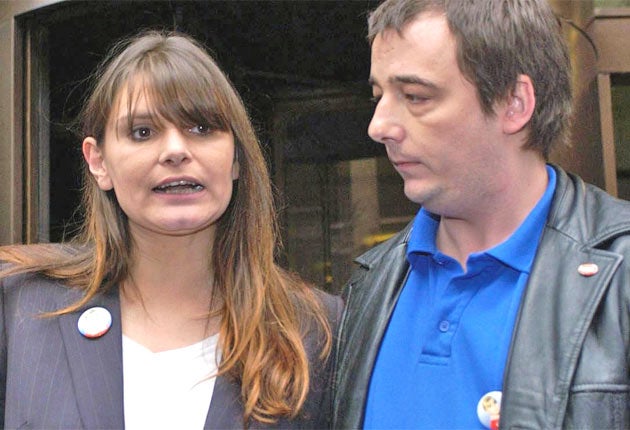Exposed after eight years: private eye's dirty work for Fleet Street

Your support helps us to tell the story
From reproductive rights to climate change to Big Tech, The Independent is on the ground when the story is developing. Whether it's investigating the financials of Elon Musk's pro-Trump PAC or producing our latest documentary, 'The A Word', which shines a light on the American women fighting for reproductive rights, we know how important it is to parse out the facts from the messaging.
At such a critical moment in US history, we need reporters on the ground. Your donation allows us to keep sending journalists to speak to both sides of the story.
The Independent is trusted by Americans across the entire political spectrum. And unlike many other quality news outlets, we choose not to lock Americans out of our reporting and analysis with paywalls. We believe quality journalism should be available to everyone, paid for by those who can afford it.
Your support makes all the difference.A former police officer has revealed that authorities have known for more than eight years the vast scale on which media organisations employed private detectives to obtain the personal information of thousands of individuals, including the families and friends of murder victims.
i and its sister paper, The Independent, have conducted a detailed examination of the files seized as part of Operation Motorman in 2003, and have been told by the lead investigator on that inquiry that his team was forbidden from interviewing journalists who were paying for criminal records checks, vehicle registration searches, and other such practices. Among the targets of these searches were the victims of some of the most notorious crimes and tragedies of the past 15 years. Many of the investigations were perfectly legal, but many others, it is clear, were well outside the law.
The Motorman files reveal that the Sunday Express used private investigators to obtain the private telephone number of the parents of Holly Wells (pictured), shortly after she and her friend, Jessica Chapman, were murdered by Ian Huntley. Last night, Express Newspapers said it had "never instructed private investigators to obtain information illegally. We have always and will continue to uphold the highest level of journalistic standards."
The parents of the murdered schoolgirl Sarah Payne were targeted by the same investigator, who was hired by two national newspaper groups – News International and Trinity Mirror – and separately by a celebrity magazine, Best, owned by the National Magazine Company. The same agency was also used by the News Of The World to target the parents of Milly Dowler, and by The People and NOTW to obtain numbers for the family of Stuart Lubbock, whose body was found in Michael Barrymore's swimming pool. The People used similar tactics to target the families of child victims of the Dunblane massacre.
Operation Motorman was set up by the Information Commissioner's Office (ICO) to look into widespread breaches of data protection laws by the media. In a signed witness statement given to i, Motorman's original lead investigator, a retired police inspector with 30 years' experience, accuses the authorities of serious failings, and of being too "frightened" to question journalists.
"I feel the investigation should have been conducted a lot more vigorously, a lot more thoroughly and it may have revealed a lot more information," he said. "I was disappointed and somewhat disillusioned with the senior management because I felt as though they were burying their heads in the sand. It was like being on an ostrich farm."
He claimed that, had investigators been allowed to interview journalists at the time, the phone-hacking scandal and other serious breaches of privacy by the media may have been uncovered years earlier. "The biggest question that needed answering was, why did the reporters want all these numbers and what were they doing with them?"
His comments reflect badly on the ICO, and the Press Complaints Commission, which was given early notification of the evidence in the Motorman files. "We weren't allowed to talk to journalists," he said. "It was fear – they were frightened."
The PCC said last night that it had never been given sight of the Motorman evidence but had strengthened its code and issued industry guidelines which had led to an improvement in standards.
Join our commenting forum
Join thought-provoking conversations, follow other Independent readers and see their replies
Comments